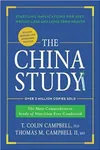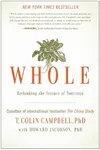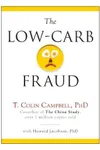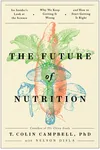Picture a biochemist who swapped milking cows for a mission to revolutionize how we eat—meet T. Colin Campbell! Known for his groundbreaking book The China Study, Campbell turned the nutrition world upside down with his evidence-backed push for a plant-based, whole foods diet. From dairy farm roots to global health advocate, his journey is a feast of inspiration.
Campbell’s work isn’t just about food—it’s about challenging what we think we know about health. His research links diet to chronic diseases like cancer and heart disease, making him a beacon for those seeking wellness through plants. Ready to dig into his story? Let’s go!
The Making of T. Colin Campbell
Born on March 14, 1934, in Virginia, T. Colin Campbell grew up on a dairy farm, where meat and milk were daily staples. As the first in his family to attend college, he earned a B.S. from Penn State and a Ph.D. in nutrition and biochemistry from Cornell University. Initially, he believed more animal protein equaled better health—a view shaped by his rural upbringing and early research. But a project in the Philippines, where kids eating high-protein diets showed higher liver cancer rates, sparked a career-defining shift.
Campbell’s curiosity led him to Cornell as a professor, where he dove into the science of nutrition. His work in the 1970s and 1980s, including lab studies showing animal protein’s link to cancer, set the stage for his most famous project: the China-Cornell-Oxford Project. This massive study would cement his legacy as a plant-based pioneer.
T. Colin Campbell’s Groundbreaking Works
Campbell’s magnum opus, The China Study (2005), co-authored with his son Thomas M. Campbell II, is a nutritional game-changer. Based on a 20-year study of 6,500 people across 65 Chinese counties, it links animal-based diets to chronic diseases like heart disease, diabetes, and cancer, while praising plant-based eating. Selling over three million copies, it’s a must-read for health enthusiasts.
His follow-up, Whole: Rethinking the Science of Nutrition (2013), dives deeper, criticizing reductionist approaches that focus on single nutrients. Campbell argues for whole foods over supplements, using clear, science-driven prose. The Low-Carb Fraud (2014) takes aim at trendy diets, while The Future of Nutrition (2020) reflects on decades of research, urging a plant-based revolution. His style? Rigorous yet accessible, blending data with a passion for public health.
Campbell’s influence extends beyond books. He’s featured in documentaries like Forks Over Knives and founded the T. Colin Campbell Center for Nutrition Studies, offering plant-based nutrition courses. His work isn’t about dogma—he’s not strictly vegan—but about science showing plants as the path to vitality.
Why T. Colin Campbell Matters
Campbell’s research has reshaped how we view food and health. His findings inspired figures like Bill Clinton to adopt plant-based diets and fueled the vegan movement’s mainstream rise. By challenging the meat-heavy Western diet, he’s empowered millions to rethink their plates, linking nutrition to disease prevention and environmental sustainability.
His legacy lies in his courage to defy conventional wisdom. Despite pushback from food industries, Campbell’s evidence-based advocacy has made plant-based eating a global conversation. At 91, he’s still lecturing, proving that good science—and good food—never gets old.
About T. Colin Campbell
- Born: March 14, 1934, in Virginia, USA
- Key Works: The China Study (2005), Whole (2013), The Low-Carb Fraud (2014), The Future of Nutrition (2020)
- Awards: Lifetime achievement awards from the American College of Lifestyle Medicine and others
- Fun Fact: He coined the term “plant-based diet” in 1980!
Ready to rethink your diet? Grab The China Study and dive into T. Colin Campbell’s science-packed, plant-powered world!



